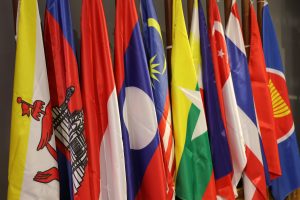The special envoy appointed by the Association of Southeast Asian Nations (ASEAN) has abruptly canceled his visit to Myanmar after being informed that he would not be able to meet with ousted leader Aung San Suu Kyi, the military junta announced yesterday.
In a statement, Myanmar’s foreign ministry said that the military administration had agreed to allow Brunei’s Second Foreign Minister Erywan Yusof to visit Myanmar this week. But Erywan canceled after being informed by his hosts that he would not be granted access to everyone he had hoped to meet.
“As Myanmar has been prioritizing peace and tranquility in the country, some requests which go beyond the permission of existing laws will be difficult to be accommodated,” the foreign ministry statement said, according to the Associated Press. The junta spokesperson previously said that the envoy would not be granted access to Aung San Suu Kyi due to the raft of criminal cases currently being prosecuted against her.
The statement confirms an earlier statement from Erywan that he would not visit Myanmar unless the military granted him access to “all parties concerned.” The envoy previously expressed his intention to meet with Aung San Suu Kyi, whose National League for Democracy (NLD) government was overthrown by the military on February 1.
The junta’s stonewalling is set to further test the patience of the 10-member ASEAN bloc, which prepares to meet today for a virtual foreign ministers meeting. According to diplomatic sources, the meeting is set to consider whether to exclude Myanmar junta chief Sen. Gen. Min Aung Hlaing from the ASEAN Summit that is scheduled for October 26-28.
The prospect of an uninvitation was first raised by Malaysia’s Foreign Minister Saifuddin Abdullah after the last virtual foreign ministers meeting on October 4. He doubled down ahead of today’s meeting, telling a new conference that if there continued to be scant cooperation from the junta, “then Malaysia’s stand would remain that we do not want the general to be attending the summit. No compromise on that.” At a news conference on October 6, Erywan confirmed that the bloc was in “deep in discussions” about not inviting the junta to participate in a virtual summit.
The Five-Point Consensus was agreed between Myanmar and ASEAN at a special meeting in Jakarta in April. In addition to the appointment of an ASEAN special envoy to Myanmar, the consensus calls for constructive dialogue among “all parties” in pursuit of a peaceful solution and the delivery of humanitarian aid. But the junta has stalled and dissimulated on the implementation of the consensus, dragging negotiations onto the terrain of access rather than substance.
With Erywan’s visit to Myanmar off the agenda for now, it remains unclear whether all nine ASEAN member states have the political will to send a meaningfully strong message ahead of the summit.
In a useful Twitter thread, Aaron Connelly of the International Institute for Strategic Studies laid out five likely possible outcomes: first, ASEAN chair Brunei could choose not to issue an invitation to Min Aung Hlaing to attend the upcoming summit; second, it could invite a lower-ranking official instead; third, the junta could boycott the summit; fourth, it could trade greater access for an invitation to the summit; or fifth, citing a lack of consensus on the question of whether or not to invite Min Aung Hlaing, Brunei “could default to inviting him and then hold a discussion regarding the consequences of his non-compliance with the Five Point Consensus among the other leaders at the Summit.”
As ever, ASEAN will likely struggle to muster the necessary consensus to enact either of the first two options – Connelly claims that the Thai government in particular is opposed to Min Aung Hlaing being barred from the summit – while the third will only happen if ASEAN is able and willing credibly to threaten one of the first two. This leaves the bloc’s leaders facing a choice between accepting watered down assurances of access from the junta (option #4) or inviting Min Aung Hlaing to the summit with promises of “hard discussions” that could well fizzle into bland generalities (option #5).
Either way, ASEAN will need to make a decision well in advance of the meeting, and the world, as well as the people of Myanmar, will be watching closely. “This is a matter of the life and death of the credibility of ASEAN,” Philippine Foreign Secretary Teodoro Locsin said in a discussion at the Lowy Institute this week. “Are we more than just people who agree over anodyne things?”

































